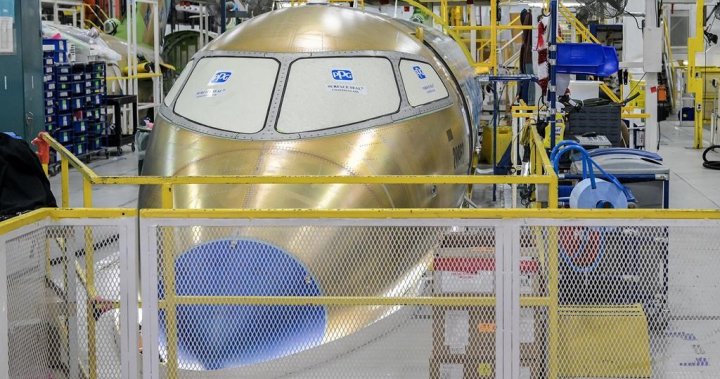Bombardier, a Canadian planemaker, recently disclosed an exemption from Canadian sanctions on Russian titanium. This exemption comes after Canada added supplier VSMPO-AVISMA to a list of entities banned for alleged ties to Russia’s military-industrial complex. Canada is the first Western government to ban Russian supplies of titanium as part of measures to mark the second anniversary of Russia’s invasion of Ukraine. Bombardier, now solely a manufacturer of business jets, no longer purchases Russian titanium directly, but some of its suppliers do. Therefore, the company needed an exemption, according to CEO Eric Martel.
Canada’s decision to grant exemptions from the ban on Russian titanium has been criticized by Ukraine’s ambassador to Canada and the Ukrainian Canadian Congress, urging the government to enforce its sanctions policy. However, Foreign Affairs Minister Melanie Joly defended the waiver decisions, stating that protecting jobs in Canada was a decisive factor in the exemptions. The exemptions issued so far only apply to the aerospace sector, including the military, and are only available for a limited time. This move by Canada has caused surprise and confusion among other Western aerospace nations and has sparked behind-the-scenes discussions between Ottawa and various capitals.
Airbus, another planemaker, has also received a waiver from the new Canadian ban on Russian titanium. Airbus has argued that banning Russian titanium would damage the aerospace industry while barely affecting Moscow. The company has stated that it and others have secured Canadian approvals to continue sourcing the small quantity of titanium that is still needed. This has led to concerns about the apparent breach in Western unity over titanium sanctions policy, with Airbus CEO Guillaume Faury stating that he sees it as a way for Canada to deal with the situation. Despite the titanium row, Bombardier reported a significant increase in orders in the first quarter, leading to a 9% increase in shares on Thursday.
Despite the strong set of orders, Bombardier and other companies in the aerospace industry are facing challenges due to supply shortages and increased production. Bombardier reported a 60% increase in orders in the first quarter, pushing its backlog to $14.9 billion. The company is ramping up production of its Challenger jets and plans to expand manufacturing of its large-cabin Global aircraft in 2024. However, Bombardier burned more cash than expected after boosting inventory to support increased production. The company remains on track to hand over 150-155 jets this year despite a revenue decline of 12% in the first quarter.
In conclusion, the exemption from Canadian sanctions on Russian titanium for Bombardier and Airbus, among other companies, highlights the complexities of balancing economic interests with geopolitical tensions. The decisions made by Canada to grant partial reprieves from the ban have drawn criticism from some groups while receiving support from others, emphasizing the delicate balance that governments must navigate in international relations. Despite these challenges, Bombardier and other aerospace companies are continuing to push forward with production and delivery of their aircraft, demonstrating resilience in the face of global disruptions. The titanium row is just one example of how geopolitical events can have ripple effects on industries such as aerospace, underscoring the importance of careful decision-making and strategic planning in a rapidly changing world.













